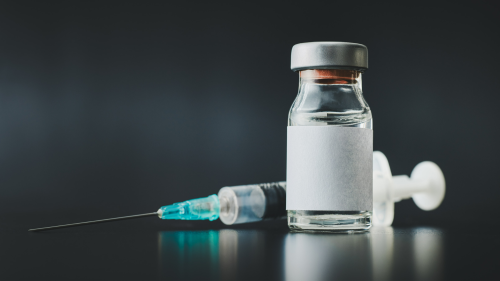
-
Understanding primary immunodeficiency (PI)

Understanding PI
The more you understand about primary immunodeficiency (PI), the better you can live with the disease or support others in your life with PI. Learn more about PI, including the various diagnoses and treatment options.
-
Living with PI
-
Addressing mental health
-
Explaining your diagnosis
- General care
- Get support
- For parents and guardians
-
Managing workplace issues
- Navigating insurance
-
Traveling safely

Living with PI
Living with primary immunodeficiency (PI) can be challenging, but you’re not alone—many people with PI lead full and active lives. With the right support and resources, you can, too.
-
Addressing mental health
-
Get involved

Get involved
Be a hero for those with PI. Change lives by promoting primary immunodeficiency (PI) awareness and taking action in your community through advocacy, donating, volunteering, or fundraising.
-
Advancing research and clinical care
-
Research Grant Program
-
Consulting immunologist
-
Diagnosing PI
-
Getting prior authorization
-
Clinician education
-
Survey research
-
Participating in clinical trials

Advancing research and clinical care
Whether you’re a clinician, researcher, or an individual with primary immunodeficiency (PI), IDF has resources to help you advance the field. Get details on surveys, grants, and clinical trials.
-
Research Grant Program
Advocacy is crucial to the Immune Deficiency Foundation’s (IDF) mission is to improve the diagnosis, treatment, and quality of life of people affected by primary immunodeficiency (PI). In 2022, IDF is advocating for the PI community across federal and state governments, as well as with private insurance payers. IDF’s policy priorities fall into four areas of focus:
- Ensuring access to care
- Providing a voice for those with primary immunodeficiency
- Expanding screening and diagnosis
- Supporting emerging research and therapies
Ensuring access to care
IDF prioritizes advocacy efforts that ensure patients have ready and affordable access to healthcare, in the site of care that is most appropriate, with the treatment recommended by their medical providers.
Medicare and Private Payer Coverage for Ig Therapy
Medicare and private payer coverage of immunoglobulin (Ig) therapy remain a priority for 2022. Since 2013, a Centers for Medicare and Medicaid Services (CMS) demonstration project has allowed 4,000 Medicare beneficiaries with PI to receive intravenous immunoglobulin (IVIG) treatments at home, covering not just the medication itself, but the supplies and services necessary to make at-home infusion realistic. The demonstration project has been extended twice, and the most recent extension pushed the enrollment cap to 6,500 individuals with PI. IDF is working hard to make this benefit permanent for all eligible Medicare recipients before the December 31, 2023 project extension deadline.
In addition to the Medicare IVIG Demonstration Project, IDF is also working to understand barriers that prevent skilled nursing facilities from accepting patients who need Ig therapy. This includes the role played by Medicare and private payer reimbursement for services.
Plasma Access and Awareness
Another high priority for IDF in 2022 is ensuring adequate plasma supply for the many patients with PI who rely on plasma-based therapies. Regulation of plasma centers falls to states, and some states have enacted regulations that exceed the U.S. Food and Drug Administration’s (FDA) plasma donation regulations. For example, California requires licensed medical professionals to perform some of the tests on potential donors, while the FDA requires appropriate training, but not licensure. As a result, states like California have fewer plasma donation centers, making recruitment of plasma donors in parts of the U.S. difficult. IDF supports state regulations of plasma donation centers that align with the federal standard.
At the federal level, IDF is fighting to reverse a U.S. Customs and Border Protection policy that classifies payment for plasma donations to those holding B1 and B2 visas as illegal “labor for hire.” Up to 10% of the U.S. plasma supply comes from Mexican nationals who cross the border to donate, and this policy prevents them from doing so.
To increase plasma supply in general, IDF also supports federal funding for public education campaigns on the importance and need for plasma donation.
Other Access to Care Priorities
In addition to Ig therapy coverage and ensuring plasma supply, IDF has several additional priorities that fall under access to care for 2022:
- Addressing healthcare disparities
- Making the expanded access to telehealth established in the pandemic permanent
- Addressing barriers to drug access, such as co-pay accumulator programs
- Ensuring access to Medigap (Medicare supplemental insurance)
- Streamlining and standardizing insurance prior authorization requirements
- Ensuring fair insurance medical review policies
- Addressing challenges with insurance preferred drug and exclusion lists
- Ensuring insurance coverage of new procedure or therapy codes
- Opposing significant cost barriers in drug pricing
- Expanding condition-accurate diagnosis codes
Providing a voice for those with primary immunodeficiency
Early in the COVID-19 pandemic, IDF recognized that the PI community’s concerns often overlapped with those of other immunocompromised communities. The Immunocompromised Collaborative, a coalition of organizations that represents immunocompromised individuals, sent its policy recommendations for the COVID-19 pandemic to Congress in July 2020 with more than 40 organizations signed on.
As the chair of the steering committee, IDF continues to advocate for:
- Immunocompromised individuals receiving priority for prophylactic and early COVID-19 therapeutics, such as Evusheld
- Vaccine access, education, and uptake
- Public health policies that protect immunocompromised individuals
- Guidance and resources from public health agencies specific to immunocompromised individuals
- Permanent expanded access to home healthcare (e.g., telemedicine, home infusion)
Independent of the collaborative, IDF advocates for the creation of Rare Disease Advisory Councils (RDAC) in every state. RDACs are official advisory groups that provide state governments and lawmakers with input on the specific needs and concerns of those living with rare diseases (note that, collectively, up to 30 million Americans, or 9% of the population, are thought to be living with rare diseases). 21 states have enacted legislation creating these advisory groups to date and IDF is working to expand that number.
IDF also supports legislation to eliminate non-medical vaccine exemptions in public education at the state level. Even when those with PI can safely get vaccines, many rely on ‘community immunity,’ (when enough people in a community are immune to a disease that they “shield” those who don’t have immunity from getting the disease) because vaccination may not provide them with adequate protection. The ease of obtaining an exemption correlates with lower overall vaccination rates and puts community immunity at risk. Eliminating non-medical exemptions ensures the safety of those with PI in public spaces.
The PI community also relies on antimicrobials, both to prevent and to treat infections. IDF supports legislation encouraging the development of new antimicrobials, as well as legislation promoting antimicrobial stewardship, or the responsible use of antimicrobials so that they remain effective.
Expanding screening and diagnosis
In the past several years, IDF has been instrumental in getting newborn screening for severe combined immunodeficiency (SCID) implemented in all 50 states. In 2022, IDF continues advocacy to ensure that federal programs remain in place to support SCID newborn screening efforts.
With genetic testing available, doctors can order panel tests for PI to help identify a person’s specific type of PI and guide treatment. IDF advocates with payers for affordable coverage of these invaluable tests.
Supporting research and emerging therapies
As with any patient-focused organization, IDF places strong value on biomedical research and the development of therapies for our community. At the federal level, supporting research and emerging therapies means advocating for targeted National Institutes of Health (NIH), Health Resources and Service Administration (HRSA), Centers for Disease Control and Prevention (CDC), and Food and Drug Administration (FDA) funding for research into PI. IDF also works with the FDA to smooth the approval process for new PI therapies, and advocates for state research funding for PI.
Addressing the lack of racial, ethnic, and gender diversity in clinical trials, which typically over-enroll white males, is another IDF priority. Without trial populations that reflect patient populations, important insights into the effectiveness of a treatment, or its range of complications, may be overlooked.
Topics
Related resources

Foundation provides guidance amid changing vaccine recommendations

Education policy changes could impact students with PI

Foundation to follow medical societies' vaccine schedules in light of ACIP hepatitis B decision
Sign up for updates from IDF
Receive news and helpful resources to your cell phone or inbox. You can change or cancel your subscription at any time.





The Immune Deficiency Foundation improves the diagnosis, treatment, and quality of life for every person affected by primary immunodeficiency.
We foster a community that is connected, engaged, and empowered through advocacy, education, and research.
Combined Charity Campaign | CFC# 66309

